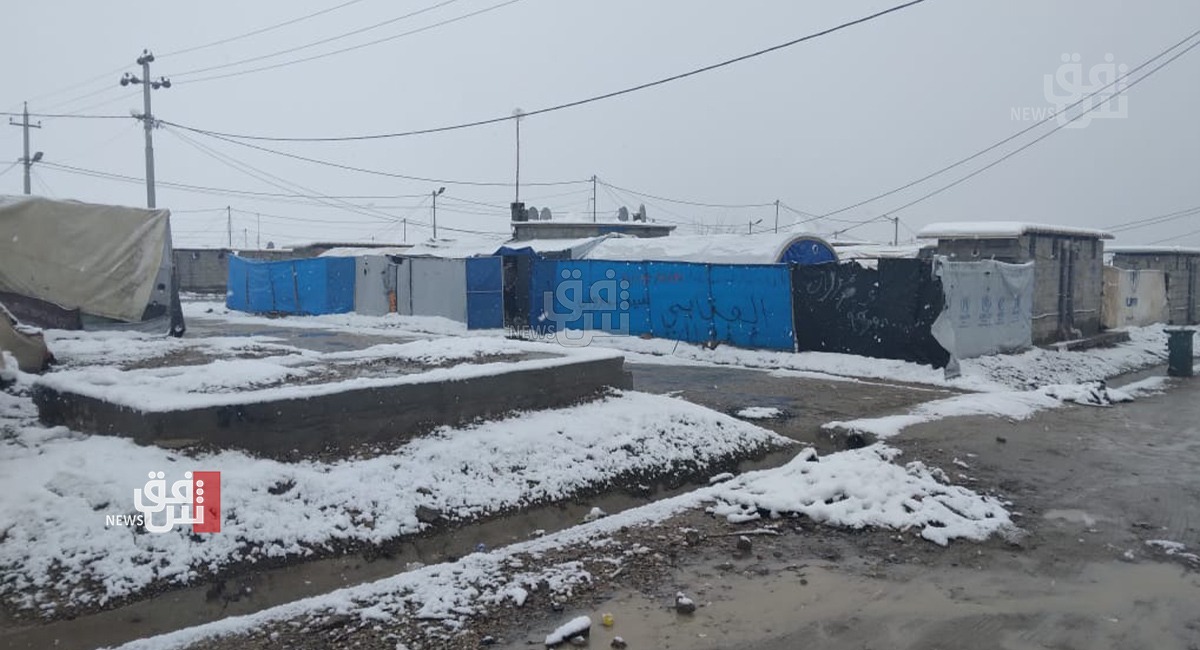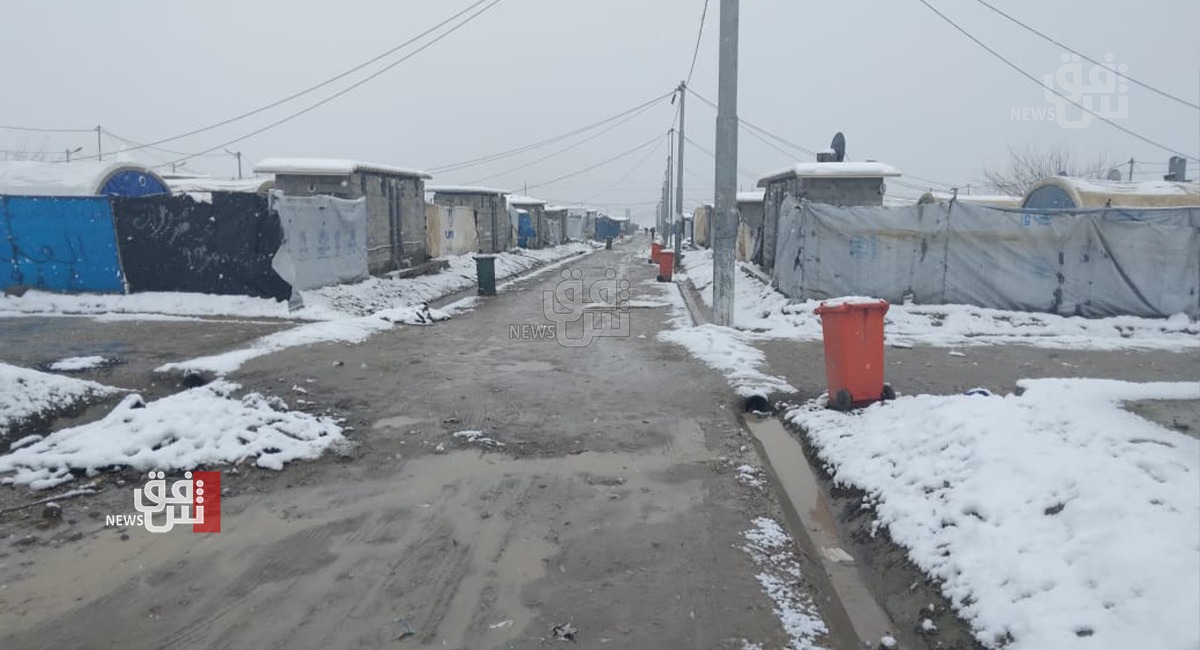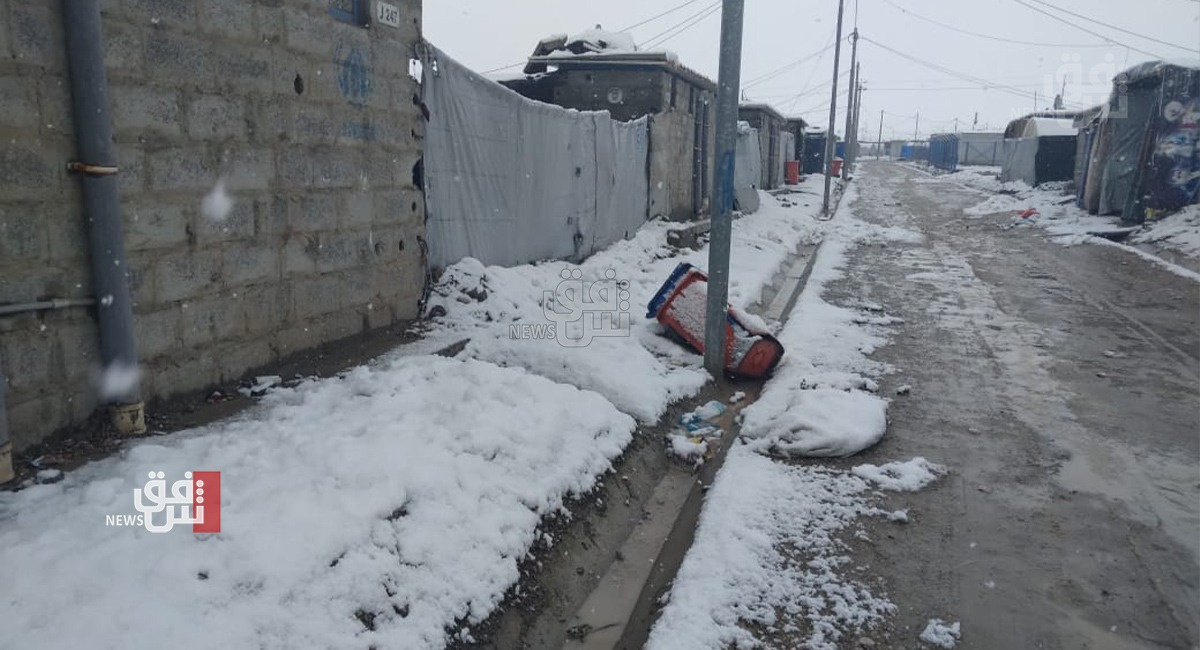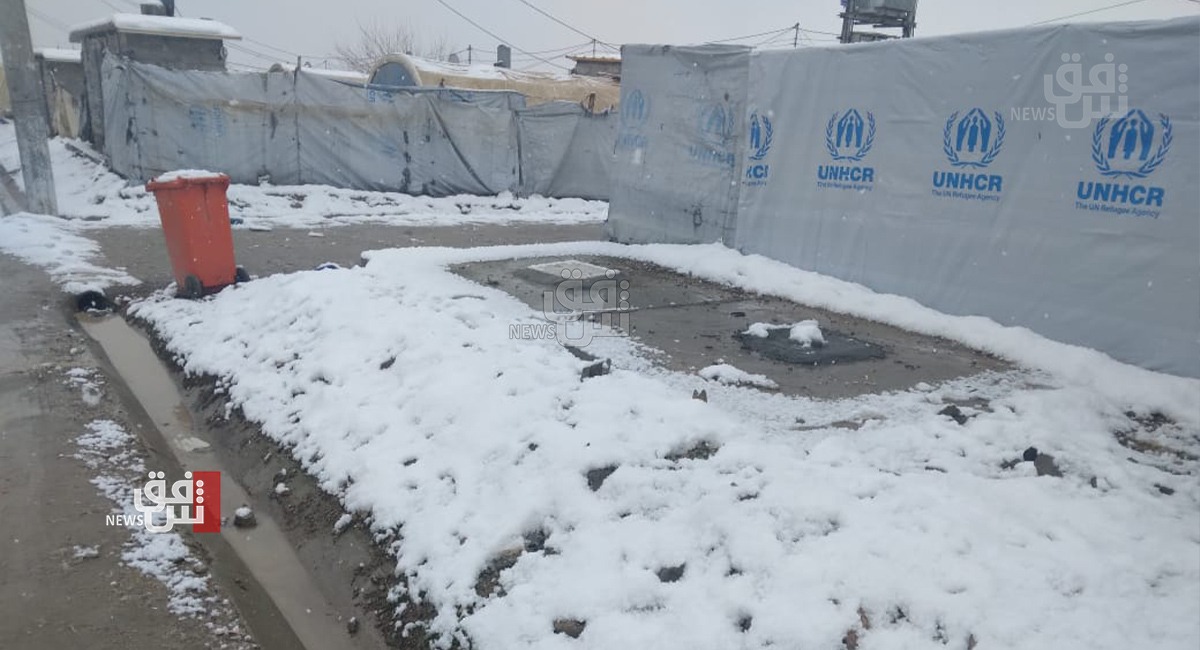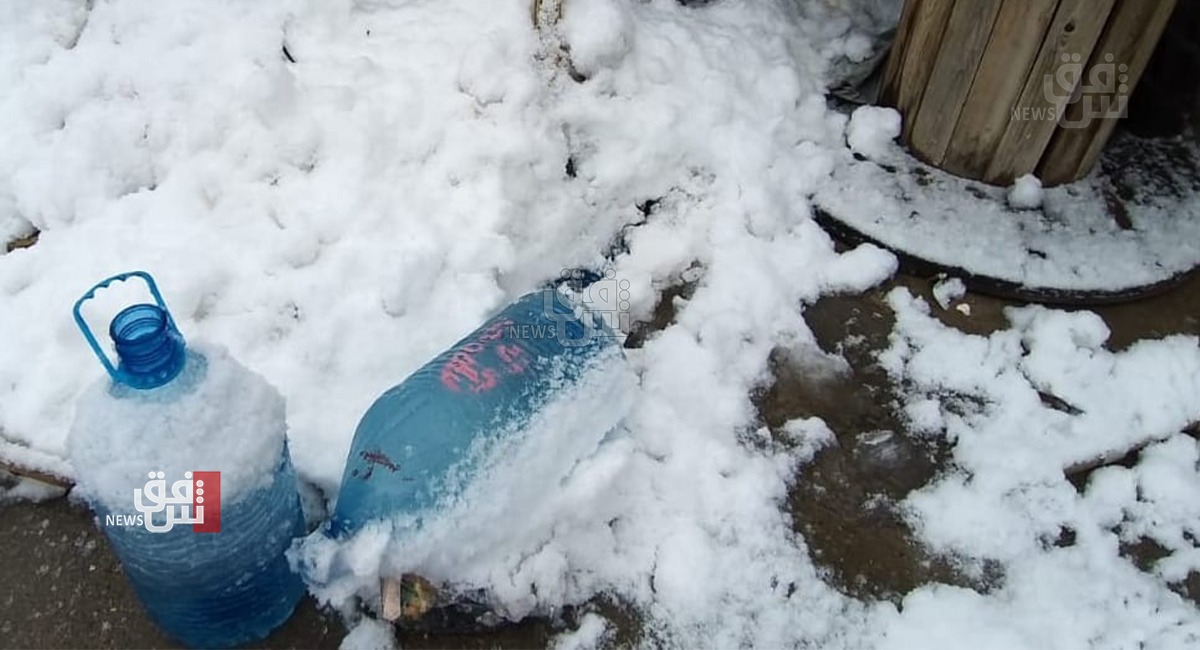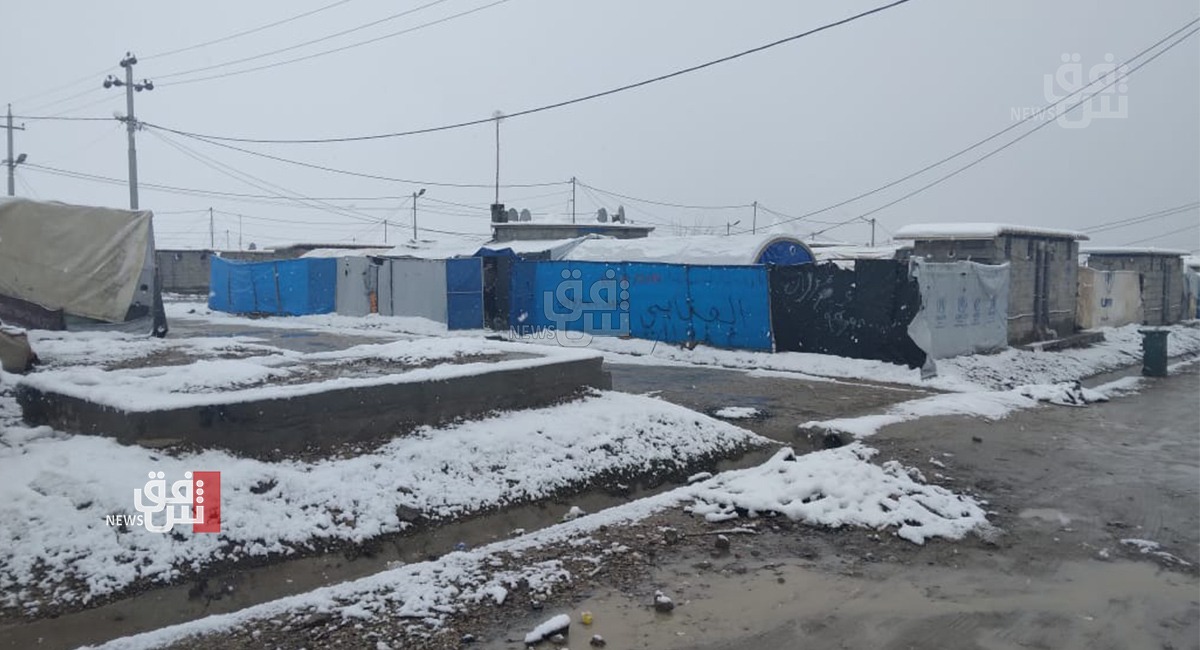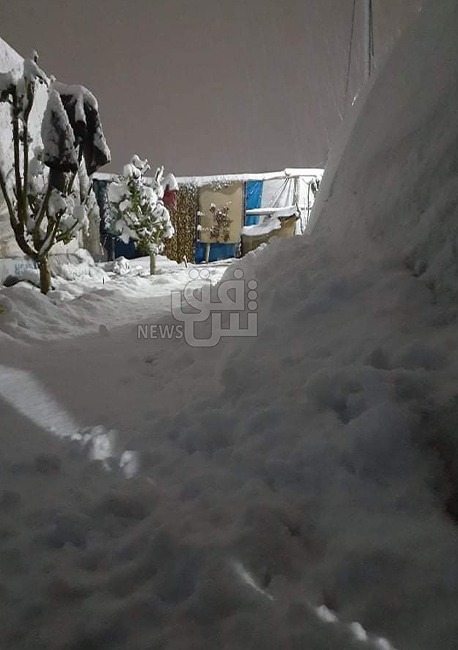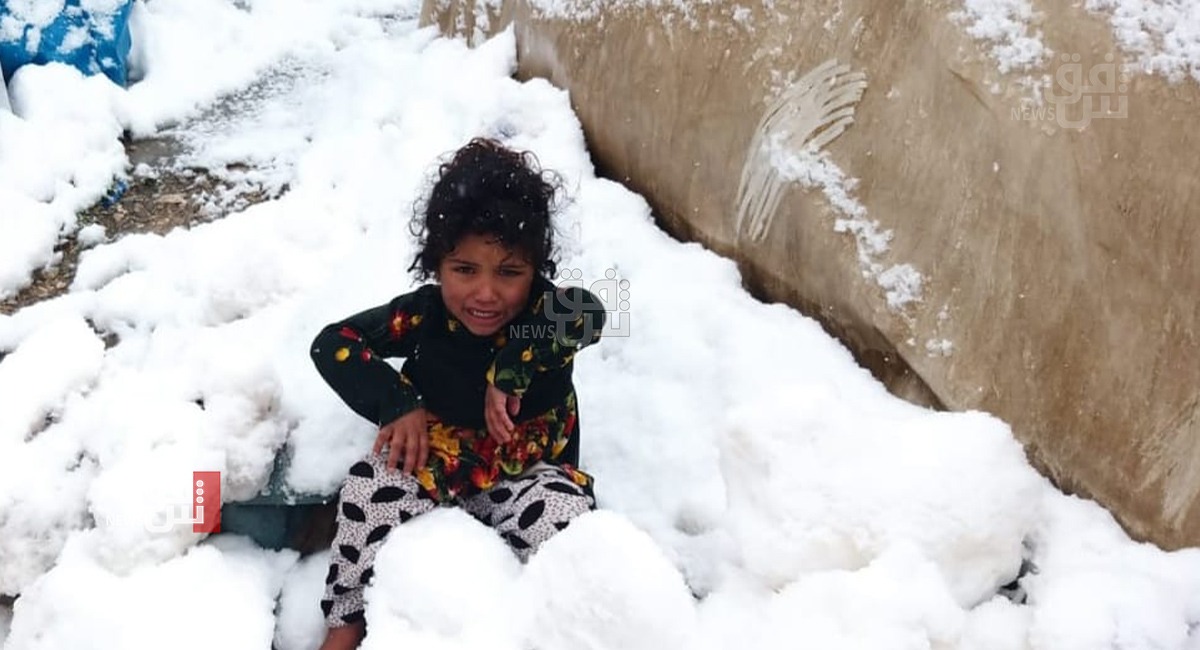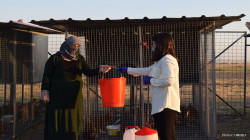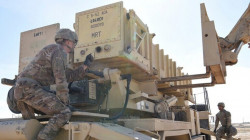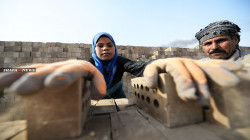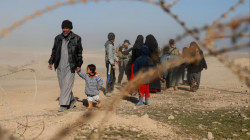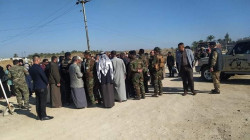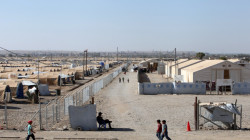Displaced persons cannot enjoy snow: children dying from cold within their parents' sight
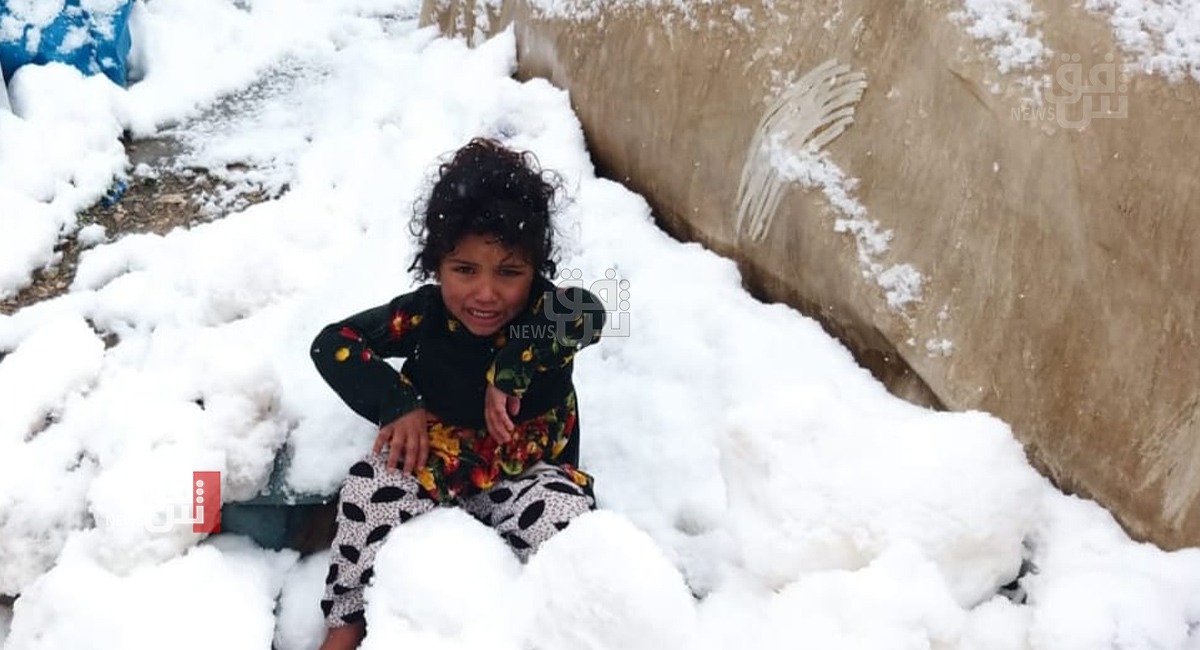
Shafaq News/ Silent bleak days slowly pass with nothing but the sound of the ferocious wind ravaging the displaced people's ramshackle tents. As the heavy snowfall blankets the tents, those sheltering inside continue to compound the misery under sub-zero temperatures piercing into their bones.
Away from their homes destroyed by terrorism, stranded inside temporary camps in Kurdistan that have become their apparently-permanent shelter, and forgotten by the concerned authorities and relief organizations; that is how the displaced persons live nowadays.
They stay inside tents that can no longer ward off them and their children the frigid cold that sneaks from the gaps that are barely closed by years of living in the hope of return.
More than one million displaced people live inside compounds in Erbil, al-Anbar, al-Sulaymaniyah, Kirkuk, Diyala, and Nineveh in poor conditions, with no sufficient clothes, heating, or fuel. On the other hand, the authorities do not provide them with what they need to survive winter, and the relief campaigns organized by volunteers and human rights organizations do not meet these basic requirements.
So far, three children, including a girl, were confirmed dead in the Ashti camp for displaced persons in al-Sulaymaniyah. An elderly woman living with her family in a dilapidated house in Diyala perished from the extreme cold with no blankets or fuel to warm her fading breathes.
One of the displaced, who has been living for years in Ashti camp south of al-Sulaymaniyah, told Shafaq News agency under the condition of anonymity about the suffering caused by the neglect of politicians fighting for political expediency, "We appeal to the Prime Minister, The Governor of Saladin, and the new House of Representatives to save us from the cold weather, to provide us with medicine and heating, and to fulfill their pledges about a decent life as their slogans stated during the elections. The cold and snow turned our days into a tragedy added to the tragedy of displacement that has been going on for seven years."
Despite assurances from the administration of Ashti camp, that the Ministry of Immigration provided all winter supplies for displaced people in the camp, one of the displaced persons, who preferred not to be named, told Shafaq News agency, "We call on the responsible authorities to supply us with Kerosene because we cannot afford it. The price of a single liter is 1,000 dinars. All of that has negatively affected the health conditions of our children and women. The government shall take a serious step and save thousands of families from this suffering that began to haunt us."
He added, "The snow is white, but our days have become dark because of the cold. The snow has flooded into our tents."
The storm has subsided, but it may be resumed in the upcoming days, threatening thousands of families with a harsh, merciless winter, especially for children born amid suffering, living successive ordeals, including those made by politicians, and others imposed by a nature that does not shy away from the tears of mothers nor the whimpering of children.
For its part, the Iraqi Observatory for Human Rights called on the authorities to intervene immediately and provide assistance to the displaced persons and provide the necessary needs to save their lives, especially women and children, in light of this cold wave, while urging the international community to help as well.
In a report, the Observatory accused the Iraqi Ministry of Migration and Displaced Persons of, "managing the file of displaced persons chaotically and dealing with it without knowledge, as it tried to conclude the file in any way, even at the expense of the displaced families."
The member of the Iraqi Parliament, Vian Dakheel, called on the federal government to speed up relief for some 700 displaced Yazidi families trapped by snow in a camp in Mount Sinjar.
The UN High Commissioner for Human Rights in Iraq has warned of the adverse health effects of the frost and cold wave sweeping most of northern Iraq, which has harmed the vulnerable and affected groups, particularly the displaced persons.
